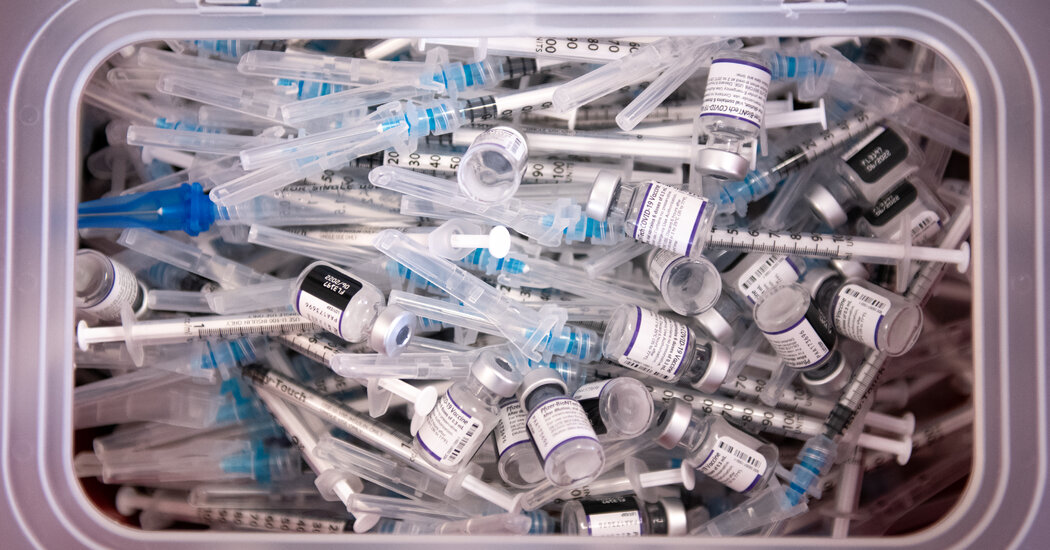
Tyson Foods, one of the first national employers to mandate Covid vaccines for its workers, is moving to ease mask requirements for its employees as the number of coronavirus cases in the United States falls.
The meatpacking giant said on Tuesday that fully vaccinated workers at “some facilities” could begin to remove their masks at work. It joined companies like Walmart and states like New York that have moved to loosen restrictions in hopes of achieving a new normal in the absence of revised national guidelines.
“Due to our many efforts and, most importantly, our enterprisewide vaccinated status, we’ve seen lower rates of Covid-19 infection, as well as extremely low rates of serious illness at Tyson,” Tom Brower, the company’s senior vice president of health and safety, wrote in a memo to employees.
“And in recent weeks the number of active cases at Tyson has declined significantly,” he added.
A spokesman for Tyson said the company has “had productive and ongoing conversations with union representatives about the policy change.”
Tyson has 120,000 workers in more than a dozen states. The long hours they spend working in tight quarters make them particularly susceptible to the virus. And the company was criticized early in the pandemic for failing to do enough to protect its workers from the coronavirus, which killed more than 100 of its employees.
Slaughterhouses became hot spots for the coronavirus as it spread, posing a serious challenge to meat production. In April 2020, President Donald J. Trump said the slaughtering and processing of beef, chicken and pork was “critical infrastructure,” indicating the administration was allowing the plants to remain open despite a growing number of deaths among their workers. The order followed weeks of industry lobbying led by Tyson.
A recent congressional report said that at a Tyson plant in Amarillo, Texas, inspectors had observed that many employees were working with “saturated” masks. At a pork plant in Waterloo, Iowa, dozens of workers fell ill and three died. Local officials, including the county sheriff, said the company initially refused their requests to shut down the plant in the spring of 2020.
Tyson says it has spent more than $810 million on coronavirus safety measures and new on-site medical services. It conducted plantwide coronavirus testing and hired its first chief medical officer.
In August, the company announced a vaccine requirement for its packing houses and poultry plants, many of which are in the South and Midwest, where resistance to the vaccines has been high. By November, more than 96 percent of its work force was vaccinated.
Tyson defines fully vaccinated as two doses of the Pfizer-BioNTech or Moderna shots or one dose of the Johnson & Johnson shot, Mr. Brower said Tuesday. The company has hosted more than 100 clinics offering booster shots, he said, and it continues to “strongly encourage” booster shots for employees.
The number of coronavirus cases has declined about 80 percent nationally since its peak in January, to a national average of 155,000 per day, about the same as it was in late December.
Tyson’s easing of its mask rules is conditioned on local and other applicable laws, as well as federal regulations, which require the continued use of masks at certain facilities, depending on the transmission rate, Mr. Brower said. Tyson plans to inform employees soon which plants and offices will be affected by the change.
It is also reviewing — and considering adjusting — guidelines for social distancing and testing.




